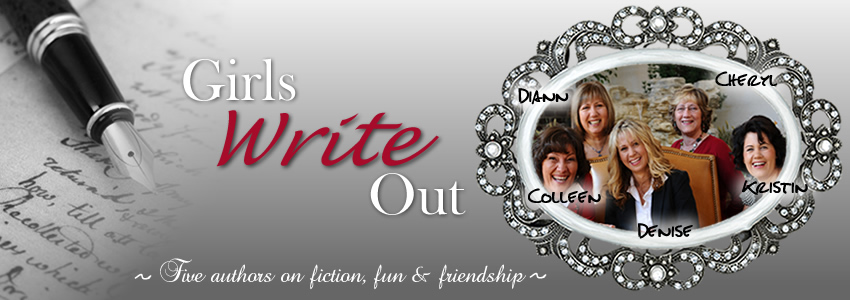How many drafts does it take to get to the end of a manuscript? If you ask 10 authors, you'll get 10 answers. Here's what works for me--a description of each draft and a look at my mental journey along the way--be very scared.
Draft #1
Time required: 5 months
This is where daily discipline comes into play. I work from a synopsis, but I don't always know what happens next. This method keeps things interesting for me. And if I don't know what happens next, how can the reader? :-)
Mental Outlook: Everything ranging from stark terror (This whole story blows!) to sheer delight (Hey, nice metaphor, Denise!)
Draft #2
Time required: Fifteen minutes daily for 5 months
This draft happens daily during the five months of Draft #1. Prior to writing each day I read the previous day's work and do some tweaking.
Mental Outlook: Happy. This is easy peasy and a great way of procrastinating the writing of the first draft.
Draft #3
Time required: Sometimes none, sometimes an hour
This is easy because it's mostly done by Colleen. As I finish each chapter, I shoot it to her, and she tells me what's wrong. I just have to fix it. I make fixes before I go on unless it's too intensive (I don't like your heroine!) In such cases, I add it to a list of things to fix when the first draft is done.
Mental Outlook: Sometimes surprised by things I didn't consider or things I miscalculated. Always grateful for the extra set of eyes.
Interlude
Time required: One day
Now it's time to go to my list of things that need fixing. Timeline stuff, changes I made in chapter 12 that will affect things in chapters 3, 6 and 8, and adding that great line of dialogue I thought of while taking my son to the orthodontist. This is my Honey-Do List except I'm the Honey that has to do it.
Draft #4
Time required: One week
This is when I go back and read the manuscript from start to finish. I look at the big picture (character arc, faith thread, the plot in general. This is the most objective view I'll ever get of my manuscript which is why:
Mental Outlook: Fear and trembling with a hint of throw-myself-in-front-of-a-bus.
Draft #5
Time required: One week
My focus narrows down to finer things: sentence structure, word choices. I focus on sentence clarity and brevity and tweak dialogue so that it sounds more realistic. I also make sure the setting and characters have adequate physical descriptions and that there are adequate sensory details to acclimate the reader to each scene.
Mental Outlook: Weeeeeeeeee! My favorite draft.
Draft #6
Time required: One week
I make another run-through doing all the same things I did in draft #5, picking up any typos I made. I jot out discussion question as I read through and add them to the end of the document. I finish with a spell-check. By the time this draft is finished, the manuscript as perfect as I'm capable of making it.
Mental Outlook: Why can't draft #1 be this fun?
Finale: Pry my fingers off the pages and turn it in to editor before deadline.
Mental Outlook: Yay I did it! mixed with What if she hates it? and Oh, why didn't I do
this?
If you break down your job into phases, which is your favorite and least favorite?
Labels: authors, Denise Hunter, drafts, writing


6 Comments:
Well, the good news is these mixed feelings of love/hate toward my manuscripts are obviously normal. The bad news is: it sounds like they'll never go away...
Lol!
Sorry to burst your bubble, Candice! LOL
I love hearing about other people's proccess. Did it take you awhile to figure out what works for you?
Yes, it took a while, Tonya. It's different for everybody.
I've finally trained myself to get the first draft on the page before any revisions, other than a a few tweaks here & there. It felt good not to get bogged down in editing, like I have with past manuscripts.
Thanks for the advice, Denise!
I'm not the only one who rewrites the same story over and over! Good to know! My favorite part of the process, hmm, probably when I am just getting to know the characters. Sometimes I feel like I am taking them out to lunch and we get to know each other. Granted, some characters are easier to get backstories and secrets from than others(I am looking at you Mrs. Mansfield. Why do you have to be so closed-mouthed? when I want you to speak?) My least favorite is when my editor/crituque partner is reading the final draft. Like you, I think 'Is she going to like it? Is it really good, worth all this time and energy? Oh, I just know it's going to be horrible.'
Post a Comment
<< Home